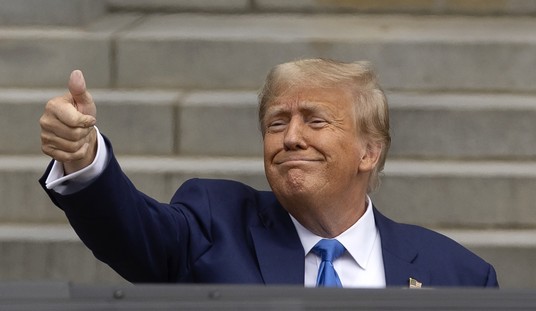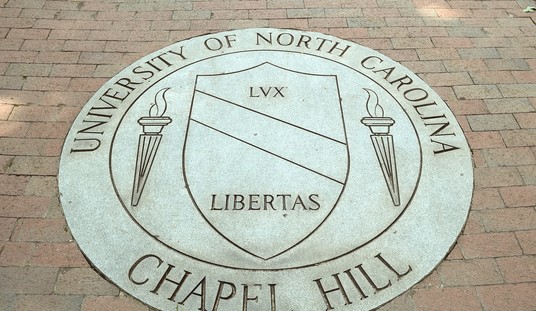Did you happen to catch “Occupy the D.O.E. 2.0” at the Department of Education over the weekend? If you missed it, you’re not alone. It didn’t receive quite the attention some of the other Occupy events have received and it was only an “Occupy” event if by “Occupy” you mean people congregating in soccer-mom chairs from 9 a.m. to 4 p.m. (with an hour break for lunch) and evening entertainment at Busboys & Poets at 5th and K Street. And hotels at night.
The Thursday-Sunday event was sponsored by United Opt Out, a group whose main mission is to convince teachers and families to opt out of high-stakes testing and to “resist all market-based reforms that seek to privatize and destroy public education.” The lineup of speakers included a collection of academic elites, union leaders, community organizers, teachers, and students. They only managed to attract a few dozen activists, which is why you probably didn’t see much about it on the news. But it’s important to hear what they had to say because these leaders in the education movement will have an important voice in shaping the schools many of our children and grandchildren will attend in the future.
While the speakers who were associated with United Opt Out were on-message, documenting their complaints about standardized testing and the corporate interests pushing the Common Core, other speakers attempted to work this message into their standard stump speeches and this is where it seemed to merge with your typical Occupy rally: There were dozens of different complaints and few (if any) solutions proposed.
As you might expect at a faculty lounge Occupation, there was plenty of radical rhetoric and Utopian vision-casting. (Most of the livestreamed videos are archived here, and you can read the speaker bios here.)
Shaun Johnson is a former public school teacher and online radio show host at the Chalk Face. He thinks teachers are too “meek” and need to get angry:
It’s finally about time that we start getting pissed off and angry…Nothing’s going to change unless people start cracking some skulls. I’m sorry, so, if you don’t get angry and go out there and start speaking out and not be so afraid, then nothing’s going to change. Because there’s a lot of money out there working against us. And we don’t have that kind of money. We don’t have that kind of political power. So we’ve gotta do something. Throw our bodies on the machine. But something’s gotta change. Something’s gotta give. And like I said, we’ve gotta start cracking some skulls.
It might be a good time to point out that they actually do have “that kind of money.” The NEA was the top contributor to state and federal races in 2008, with $45 million, more than 90% going to Democrats. And that doesn’t include tens of millions the teachers’ unions spend on political activity that is reported to the Department of Labor and doesn’t show up on campaign finance reports.
Johnson also led the crowd in a profanity-laced guessing game about the names of charter schools. He implied that kids using at-home charter schools are spending their days engaged in cybersex. “What are you doing with your hands?”
Ceresta Smith, a Miami-Dade teacher and “committed unionist,” spat out a profanity-laced, racist rant, calling Cory Booker and John Legend sell-out Uncle Toms and Sallys who have undermined education in black and brown communities because of their support for charter schools. Marco Rubio was called out for his “crimes against humanity.” She reserved her nastiest vitriol for Michelle Rhee, former chancellor of the D.C. Schools:
When I think about thirty-five African…probably African American women indicted and maybe facing forty-five years because they erased tests and you have an Asian b**tch who did the same d**n thing and nobody said a word? OK? That’s ridiculous. Things need to change. [Cheers from the crowd.]
(An investigation by the Dept. of Education found no evidence of widespread cheating in the D.C. Schools and no evidence that Rhee was involved.)
What parents wouldn’t want Ms. Smith teaching their kids?
Mark Naison, professor of history and African American studies at Fordham University, said that Race to the Top is the “single worst policy initiated by a Democrat since the Vietnam war.” (There’s a lot of competition for that first spot!) Naison was a student at Columbia during the war and spent the war years doing important things like shutting down construction on a gym in Morningside Park. He relived his glory days for the Occupation attendees:
With six Columbia students and seven neighborhood residents…we went down and pulled down the fence and got arrested….[A] month later, there was a rally and demonstration bringing black students and the SDS at Columbia together…500 people pulled down the fence and occupied five buildings and the gym did not go up..
It’s time to put our bodies in front of the machine. We are building a movement that is gradually going to get hundreds of thousands and millions of people, so do not be discouraged by our small numbers now because we are going to bring this machine to halt. There will be great damage before this is done. I’m not going to lie to you. It took ten years ten years to stop the Vietnam war and it may take ten years to bring this to a halt. But we will do it.
He didn’t say what he meant by “there will be great damage,” but we should never underestimate someone who had ties to the terrorist SDS.
Jim Horn, professor of educational leadership at Cambridge College in Massachusetts, compared the battle to end testing to the fight to end slavery. He says they are the modern day abolitionists and should never partner with the enemies of public education:
They did not accept into their thin ranks those who advocated for slavery when it was convenient or profitable to do so, nor did they ally themselves with groups who did. They did not craft their message so as not to upset those who supported slavery directly, or those who did so by assuming the neutrality on the subject. They voted for no one who did not oppose slavery by deed or word. The did not mute or obfuscate their message in order to attract financial support for their cause from collaborators or enablers from slavery. Maybe there is something to learn from the abolitionist’s example as we struggle to abolish high-stakes testing that keeps our children and teachers captive and working to make others rich.
But he didn’t just reach back to the Civil War, he also likened their fight to guerrilla warfare:
Rather than sitting in your warm homes this weekend, hoping that someone will do something to end high stakes testing, your presence here shows that you have made a conscience decision to defy the tyranny of testing’s corporate profiteers. To stand against the billionaires fixated on social control and to expose the ridicule of the high-paid school overseers. So thank you, thank you, and thank you again for when you go back home where this guerrilla war and this war for publicly controlled, humane schools without high-stakes tests will continue.
Michelle Strater Gunderson talked about how union organizers pulled off the Chicago teachers’ strike last year. She said an early step was to get reluctant teachers on board. She said it wasn’t fair to ask young, non-tenured teachers to join the movement, so they started with simple “actions” like wearing their red CTU shirts to school on a Friday. Any teachers who didn’t wear their red shirts received a visit from union reps. Gunderson insists these were not thuggish actions.
In a moment of self-important bravado, Gundersaon said, “I don’t think it’s an exaggeration to say these are the most courageous people in our country.”
I know some parents of American soldiers who would disagree with these red-shirted union bullies.
In a lighter moment, someone named Lori Thomas came up during a “mic check” and ranted about social media and people not connecting face-to-face anymore. She lamented how people are glued to their phones when they’re in a crowd and it isolates them. She said all this with ear buds stuffed in her ears. Then she added, “There is a constitutional right to an education. It’s not a state’s right.”
Which, of course, is not true, and I hope Ms. Thomas is not teaching government. You will not find anything about education in the U.S. Constitution, which is the problem with federal programs like No Child Left Behind and Race to the Top. Most (all?) state constitutions guarantee a right to an education, but the federal Constitution is silent on the matter.
This is emblematic of the misinformation proffered at the event. In some cases, the total disrespect for our form of government was stunning. Education activist Diane Ravitch, while unloading about the evils of school vouchers, said, “[T]here is not a single state in this country that has ever voted for vouchers. Not one. These are all legislatively imposed.”
If you read that statement quickly or were only half-listening to her speech, you may have missed her point. She’s not saying that an executive order by a governor or president created the voucher programs. “Legislatively imposed” means that the laws were passed by a legislature elected by the people of their states. It appears that Ravitch doesn’t have much use for such laws.
One of the words heard most often throughout the weekend was “democracy.” It’s a loaded word in union circles because many of their victories throughout the years have been won in state referendums where legislative actions are replaced (more or less) by direct democracy. In recent years, the unions have won significant battles in states like Ohio, where they drove back public-union reforms with millions of dollars in emotional ad buys and a compliant media at their side. They took their issue to a vote of people they spent many months and millions of dollars misinforming.
There were also plenty of Utopian visions for recreating America in the “neo-liberal” image.
Professor Henry Louis Taylor, Jr., a historian/urban planner, is a professor at the University at Buffalo. His research focuses on the Cuban studies, anchor institutions, distressed urban neighborhoods, and urban education. He believes that income inequality is the problem and that high-stakes testing pushes students of color into low-wage jobs. His solution is to build full-service educational infrastructures in distressed neighborhoods:
In neo-liberal America, the only way we will be able to transform the trajectory of people’s lives is to recreate and rebuild the neighborhoods in which they live. Our starting point must be to build a strong educational infrastructure inside of every distressed neighborhood. … So we must build this type of structure in the neighborhoods so that every child is able to access institutions, programs and activities that will provide them with the skills, and [unintelligible] by the time they enter kindergarten and first grade. … We have to that end build out this structure in every neighborhood so that the children have the kind of supervision, assistance, and help that will nurture and grow and develop them.
Tom Poetter, professor of curriculum studies at Miami University (Paul Ryan’s alma mater), shared his thoughts on the purpose of teaching:
Teaching isn’t about meeting incentives. It isn’t about content delivery or performance objectives or standards. Instead, great teaching is about creating meaning. It’s about connecting with children, building relationships, passing on the intellectual, emotional, and practical dimensions, the lessons of democracy to fit for life and…drawing students out , not filling them up.
Oh, I don’t know. How about teaching the children math content and objectives instead of nebulous concepts like “creating meaning”? But Poetter’s teaching dreams go beyond passing on his “emotional dimensions.”
It’s about a life focused on the public good, not the private good. What Philip Phenix said in the 60’s he would call the democracy of worth, not the democracy of desire. The democracy of worth is about cultivating the life in the mind of schools that privileges experience, mutual regard, respect, tolerance, social action for the good of all—not just the relative few—not just for ourselves, but for everyone. The common good, the public good is about everyone and we all have to make sacrifices for it.
What kinds of sacrifices will our tiny children have to make for the public good? Poetter doesn’t specify, but he seems confident that he knows what’s best for our little ones and for the good of society and to preserve “democracy.”
The keynote speaker for the weekend was Deborah Meier, a senior scholar at NYU’s Steinhardt School and board member of the Coalition of Essential Schools. She said the battle for public education is a battle for democracy.
The crisis we are going through is one about democracy—about whether the very idea of democracy is worth holding onto. There isn’t an institution in our country that isn’t under attack — that isn’t being reshaped by a frontal assault on the idea of democracy.
She asserted that we could lose our democracy because the voting system is so unfair. She gave several examples:
** The Electoral College – North Dakota has a more powerful vote than New York.
** All the people who are immigrants who live in this country and are affected by this country but cannot vote.
** All the primarily black and Latino men who are permanently barred from voting in this society because we jailed them. We took two things away from them at once — their freedom and their political voice.
** People that we’re busy trying to keep from voting by sending them to the wrong polling place, or expecting them to submit a photograph of themselves.
She then made an outrageous statement:
At this particular moment, we have more inequality [in this country] than we have ever had—ever. And I’m going back to 1492.
Ever! The only thing I can surmise is that the history books at NYU are missing the chapters covering the period before the Civil War and during the Jim Crow era.
Meier complained,
How can we possibly pretend, if we all have one vote—even if we did have one vote—that would be fair? Part of the vote is the discussion that takes place before you vote. And in the absence of that discussion being a fair and equal one, there is no way. … The only thing equal to the power of money is the power of collective action.
And so ended four long days of complaining, whining, and foot stomping. Though they didn’t camp and defecate in the streets, and though most of them have fancy credentials after their names and comfortable jobs in academia, this group had a lot in common with the Occupy movement. Full of complaints, demands, and blame without taking responsibility or offering solutions other than “We shall take to the streets!”












Join the conversation as a VIP Member